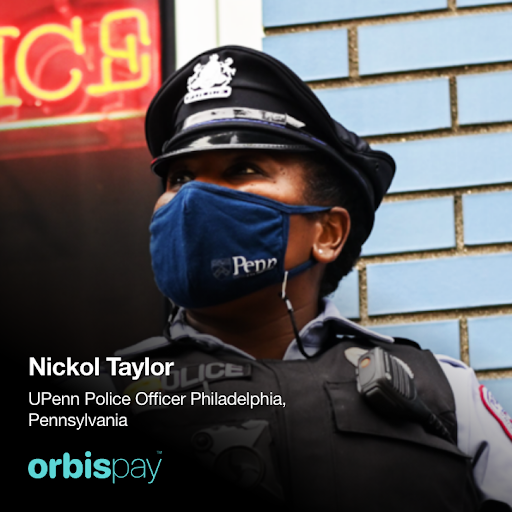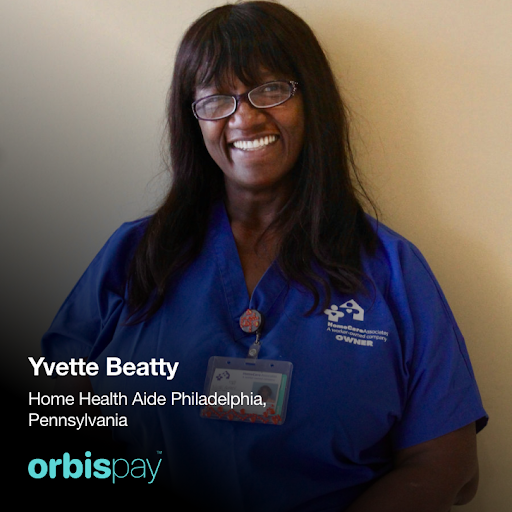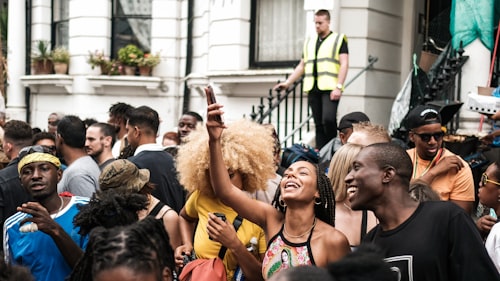One in three essential workers is reportedly an African American, putting this demographic at greater risk than any other during the pandemic.
According to a recent report released by the Urban Institute, 1 in 3 African Americans performs essential jobs that require them to work in person and come in close contact with others. Additional studies confirming this indicate that essential workers are more likely to be Black (followed by Hispanic). And they typically receive lower average incomes, benefits, and sick time despite facing the most significant risks.
Celebrating the unsung African American Heroes
This Black History Month, let’s recognize and acknowledge the contributions of three African American frontline workers and understand the impact COVID-19 had on their work and personal lives. Despite that, these heroes didn't back off and resiliently continued to serve their communities.
1. Nickol Taylor

For 23 years, Taylor has protected the faculty, students, and community members at the University of Pennsylvania in Philadelphia. Before the pandemic, she thrived on the interactions and conversations with friends and strangers that every new day would bring.
Every day is something new. The people may be the same, but there's always something going on.
Making connections with the public and helping them gave her job satisfaction. When the pandemic hit, that satisfaction quickly disappeared. Conversations came to a halt, and her landscape became a ghost town.
But Taylor cannot stay home. Despite the risks, Taylor goes to work each day to ensure the public has someone to depend on for help. Storefronts and property are secure, and emergency help is available.
Even though regulations have loosened and more people venture out, the conversations aren’t the same. But Taylor understands why so many are reluctant beyond a wave, a nod, or a “How are you?” and finds new satisfaction in knowing her dedication during the crisis is helping the public she loves.
Recently, Officer Nickol Taylor was recognized and awarded for saving the life of a young man; demonstrating again Taylor’s unflinching passion for helping.
2. Jason Hargrove

The late Jason Hargrove was among those heroes who never took the city transportation work as just another blue-collar work. He felt like a king with his uniform on. And was committed to the service he offered to hundreds of commuters each day. Jason loved connecting with his regulars on a personal level.
When the pandemic struck, Jason couldn’t work remotely; he was an essential worker that moved other essential workers around the city despite the panic and personal risk. Jason was known to keep his bus meticulous, even more so with the spread of COVID-19. He was very conscientious about the state of emergency his city was in the midst of.
One day, Jason noticed the flagrant and cavalier attitude of a particularly antisocial rider who continued to cough wildly into the faces of passengers and Jason himself. The outrageous lack of regard for fellow humans was too much. Though he held his tongue at the moment, he later shared how he felt in a Facebook Live Video. The clip uses strong language, but it’s hard to pretend you’re not crying when you listen to this compassionate man. That’s because only days later, Jason Hargrove died due to the COVID-19 virus.
Jason Hargrove is remembered as a courageous frontline worker who stood up and raised a voice against socially unacceptable behavior that can put the lives of many at risk.
3. Yvette Beatty

Home health aides continuing to work during the pandemic are faced with high-risk conditions. These professionals typically visit multiple homes in a day, which increases exposure for them and their patients. Most of them often use public transportation for traveling, which puts them at further risk.
Yvette and her colleagues often engage in everyday personal care tasks, like dressing, meal preparation, and providing general companionship and care for every human need. They even have to run errands for their clients, like picking up medications and doing groceries that don't allow them to maintain social distancing.
What's worse is that the state and federal governments have yet to lend much support to these workers when providing protective equipment. Hence, they are resorting to sacrificing what little money they can; to personally purchase equipment like gloves and masks of lesser quality than what has been provided to hospitals.
Yvette asks that the community and the government recognize home health aides and make better efforts to protect them during this crisis.
Black History Month: Beyond February
Black History Month was initially created to observe and reflect on the contributions and sacrifices made by the African diaspora. Now it has also evolved the way different communities perceive people of color. It has ignited a sense of hope, faith, reassurance, and confidence that the Black community needed to open up more opportunities for themselves.
As we continue to show our gratitude for frontline and essential workers through 2022, let’s take time this Black History Month to give extra care and attention to the disproportionate number of African American essential workers who put their safety and well-being on the line every day. They need our local and national support for better working conditions and compensation.
We, at OrbisPay, admire and acknowledge the contributions of African Americans and pay tribute to hundreds and thousands of African Americans like Nickol Tylor, Jason Hargrove, and Yvette Betty, who have worked or are working effortlessly to create a positive impact in the community.

